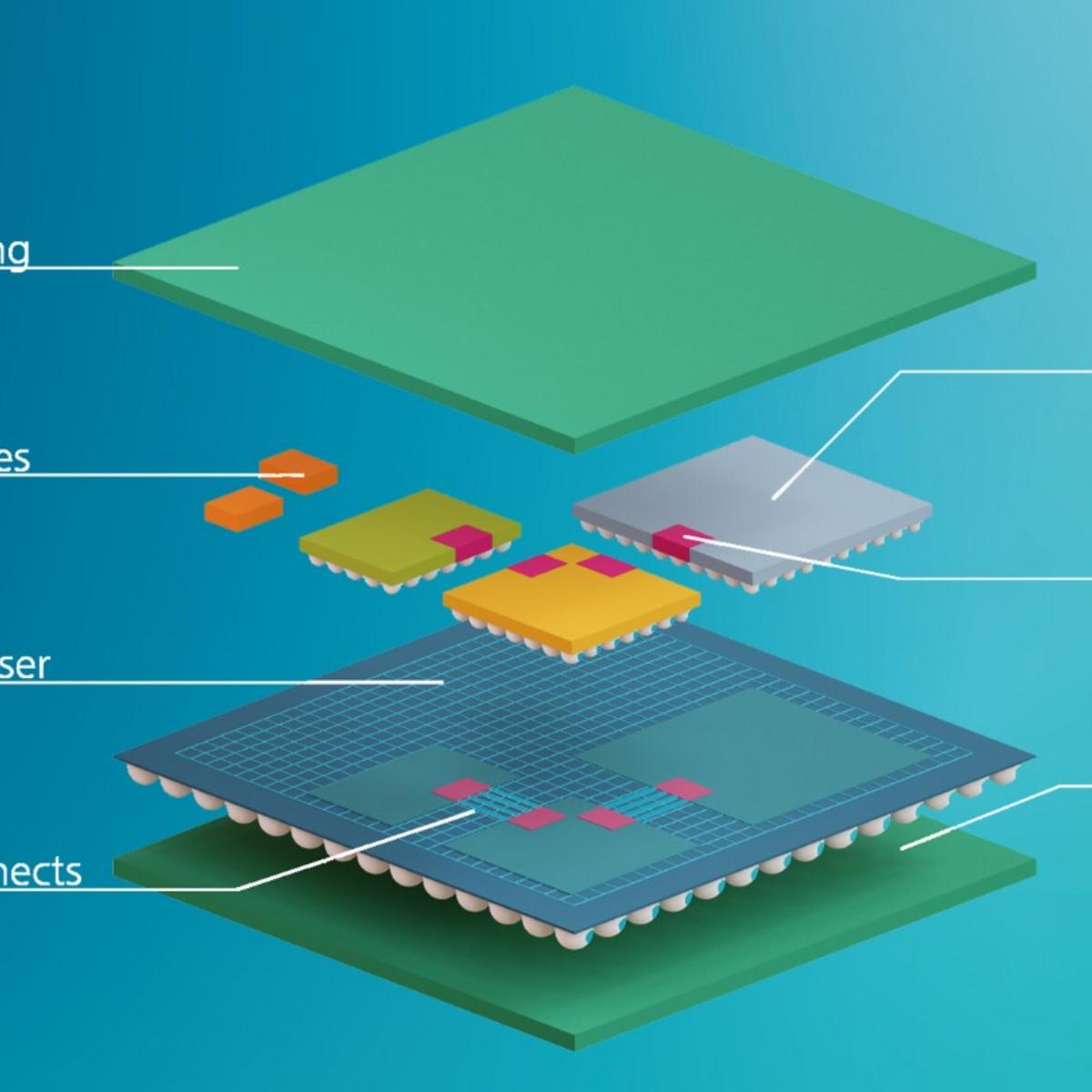Chiplets: Innovation for the automotive electronics of tomorrow
Chiplets as a key technology for the semiconductor industry
"Chiplets will play a critical role in the global semiconductor industry in the years ahead because this technology offers the greatest freedom possible for customizing the design of electronics systems. This makes it all the more important for European industry to have a coordinated roadmap for the incorporation of chiplets into its own products,” says Andy Heinig, department head at Fraunhofer IIS/EAS and head of the Chiplet Center of Excellence (CCoE). “That’s why it’s essential for companies to be able to assess the feasibility of chiplet-based system solutions early on. For this reason, at the CCoE we take the wide range of requirements and constraints these products have and convert them into practical workflows and new evaluation processes.”
Focus on the automotive industry
The aim of the CCoE is to do all it can to support the competitiveness and technological sovereignty of strong European industrial sectors. For the first two years, the CCoE will therefore focus on applications in automotive electronics. These efforts will bring together a range of key partners all along the value chain – from car manufacturers to semiconductor companies. The Fraunhofer researchers want to provide these partners with methodological approaches, architectural concepts, reusable basic components, and roadmaps for the development, manufacture, and robust design of chiplets. In addition, the CCoE assesses a variety of chiplet solutions in terms of their performance, cost, and reliability. The research findings will flow into international standards and play a role in shaping a multi-vendor chiplet ecosystem.
Advantages of interdisciplinary collaboration
What sets the CCoE apart is Fraunhofer’s expansive portfolio in electronics development and manufacture, as well as the close interdisciplinary collaboration with industry. The CCoE is operated by the Dresden-based Engineering of Adaptive Systems EAS division of the Fraunhofer Institute for Integrated Circuits IIS, the Berlin-based Fraunhofer Institute for Reliability and Microintegration IZM and its division All Silicon System Integration Dresden – ASSID as well as the Fraunhofer Institute for Electronic Nano Systems ENAS. Companies interested in participating in the CCoE’s pre-competitive activities and shaping its research agenda have until fall 2024 to sign up. For more information about the CCoE and ways to get in touch, visit www.chiplet-center.fraunhofer.de/en.
Chiplets - A flexible solution for electronic systems
Electronics solutions based on chiplets are the first to allow the integration of various functional units in different technologies on a substrate or into a 3D chip stack. This gives electronics engineers the option of using the manufacturing technology best suited to the case at hand. For example, for certain functionalities, engineers can now concentrate the latest (and expensive) technologies on just a few circuits, instead of having to use them for the entire chip. Today, chiplets are already a cost-effective option for applications produced on a large scale and are used predominantly by US companies in data centers. However, each company applies its own standards. Using chiplets from different sources for product groups with smaller and medium batch sizes, such as for automotive applications, has thus far proved largely unviable
Source: Press release Fraunhofer Institute for Reliability and Microintegration IZM “Paving the way for the semiconductor future: The Chiplet Center of Excellence commences operations”, Aug 5, 2024
Tradition meets innovation
The Airport Region Berlin Brandenburg offers a unique combination of established companies, a dynamic start-up scene and renowned research institutions. This combination creates ideal conditions for industrial companies looking for an innovative environment. In particular, the Industry 4.0 sector benefits from these synergies and includes industries such as additive manufacturing, the electrical industry, mechanical and plant engineering, plastics, chemicals, metals and food.
Companies in these traditional industries play a central role in the development of cutting-edge technologies and promote networked supplier relationships in the capital region. This contributes significantly to the economic development and competitiveness of the region.
For further information on the economic development of growth industries and on economic and technology promotion for companies, investors and scientific institutions, please contact
